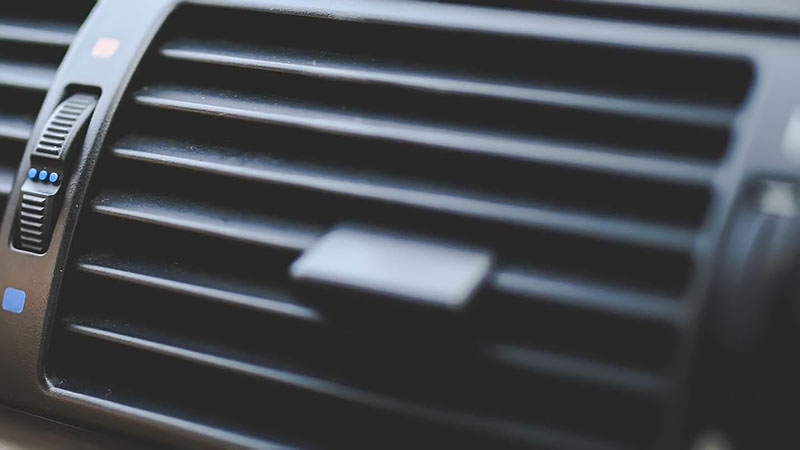Driving during hot summer days can be quite challenging, especially if your car’s air conditioning (AC) system is not working correctly. The AC can shut off automatically due to a high engine temperature, leaving you in a hot and uncomfortable situation. But is it safe to drive your car in this condition? In this blog post, we will discuss the reasons behind high engine temperature, its effects on the AC system, and whether it is safe to drive under these circumstances.
Contents
Engine Temperature and its Impact on the AC System
Your car’s engine needs to maintain a specific temperature range for optimal performance. When the engine temperature rises, it can cause various problems, including a negative impact on the AC system. A high engine temperature can force the car’s computer to shut off the AC to prevent further damage. This is a protective mechanism that ensures the engine does not overheat, as the AC puts additional load on the engine.
Common Causes of High Engine Temperature
Several factors can contribute to a high engine temperature. Some of the most common causes include:
a. Low Coolant Levels
The coolant is responsible for absorbing the heat generated by the engine and dissipating it through the radiator. If the coolant level is low, the engine will not be cooled effectively, leading to high engine temperature.
b. Malfunctioning Thermostat
The thermostat is a temperature-sensitive valve that regulates coolant flow between the engine and radiator. A malfunctioning thermostat may remain closed, preventing the coolant from reaching the radiator and causing the engine to overheat.
c. Radiator Problems
A clogged or damaged radiator can hinder the cooling process, leading to a high engine temperature. Radiator issues can include leaks, blockages, or damage to the radiator fins.
d. Water Pump Issues
The water pump circulates the coolant throughout the engine and radiator. A failing water pump can result in inadequate coolant circulation, causing the engine to overheat.
e. Engine Cooling Fan Problems
The cooling fan pulls air through the radiator to dissipate heat. If the fan is not functioning correctly, the radiator will not be able to cool the engine effectively, leading to high engine temperature.
Effects of High Engine Temperature on the AC System
A high engine temperature can have several adverse effects on the AC system:
- The car’s computer may shut off the AC compressor to reduce the load on the engine and prevent further overheating.
- Overheating can cause damage to the AC components, such as the compressor or condenser, leading to costly repairs.
- The increased engine temperature can result in reduced AC efficiency, as the system struggles to cool the cabin air.
Safety Considerations When Driving with a High Engine Temp and No AC
Driving with a high engine temperature and a non-functioning AC system can be unsafe for several reasons:
- The risk of engine damage or failure increases with prolonged exposure to high temperatures, which can result in a sudden breakdown or costly repairs
- Overheating can cause damage to other components, such as the transmission, head gasket, and cooling system.
- Driving in a hot cabin without proper ventilation can lead to driver fatigue, dehydration, and reduced concentration, increasing the risk of accidents.
Considering these risks, it is generally not safe to drive with a high engine temperature and a non-functioning AC system. If you find yourself in this situation, it is best to pull over and address the issue before continuing your journey.
Tips for Preventing High Engine Temperature
To avoid high engine temperature issues, consider the following tips:
- Regularly check and maintain the coolant level to ensure proper engine cooling.
- Inspect the thermostat for proper function and replace it if necessary.
- Clean and maintain the radiator to prevent blockages and ensure efficient cooling.
- Check the water pump for signs of wear and replace it if required.
- Inspect and maintain the engine cooling fan to ensure it operates effectively.
- Perform regular maintenance on your vehicle, including oil changes, as per the manufacturer’s recommendations.
- Monitor the engine temperature gauge while driving and address any unusual temperature increases immediately
Conclusion
In summary, driving with a high engine temperature and a non-functioning AC system can be unsafe due to the risks of engine damage, component failure, and decreased driver alertness. It is crucial to address the root cause of the high engine temperature before continuing to drive.
To prevent engine overheating and AC issues, regular vehicle maintenance, including checking coolant levels, inspecting the thermostat, and maintaining the radiator, is essential. By following these tips, you can ensure that your car remains in good working condition, providing a comfortable and safe driving experience.
Remember that if you ever find yourself in a situation where the engine temperature is unusually high and the AC system is not working, it is best to pull over and assess the problem before continuing your journey. Seeking professional help from a qualified mechanic is always recommended to ensure that your vehicle is properly diagnosed and repaired.
